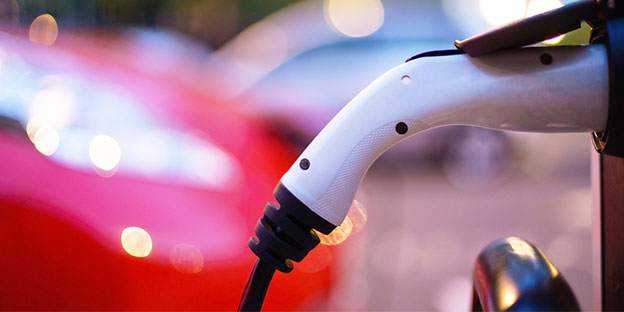As of April 8th 2019, London will be the first UK city to introduce an Ultra Low Emission Zone (ULEZ), and this will have an impact on motorists and businesses that operate in and around central London.
In this guide we wanted to explore the key areas of the ULEZ that companies need to be aware of, and how it will impact those that regularly operate, or are considering expanding, into the area.
What is an Ultra Low Emission Zone?

In short, an Ultra Low Emissions Zone (ULEZ) is a set area within a city or other built-up area where vehicles have to meet strict, set criteria of emission standards without being charged.
London is the first major UK city to roll out an ULEZ to help combat air pollution by discouraging drivers from entering if they have a vehicle that emits high levels of CO2.
When will the ULEZ apply?
The ULEZ will apply 24 hours a day, seven days a week, 365 days a year. This includes bank holidays, and times that the Congestion charge is not applied.
Would you still have to pay the Congestion Charge?
Yes, the charges for entering the ULEZ are in addition to the existing Congestion Charge. The existing Congestion Charge is £11.50, reduced by £1 per day if the vehicle is registered with Auto Pay.
Which vehicles will be charged?

- All petrol vehicles that do not meet the Euro 4 standards
- All diesel vehicles (including vans, minibuses and HGVs) that do not meet the Euro 6 standards
- Motorbikes that do not meet Euro 3 standards
For more information on your available options, to see whether you are entitled to a discount on the charges and a map of where the ULEZ operates, you can visit the Government’s website.
What will it cost to enter the London ULEV?
If a fleet vehicle or van (up to and including 3.5 tonnes) doesn’t meet the emissions requirements, you will have to pay £12.50 per day to enter the ULEZ. In contrast, HGVs and lorries (over 3.5 tonnes) will have to pay £100 per day to enter the zone.
If you are in any doubt on the emission standard of your fleet vehicle, then it is important that you discuss this with your fleet management company or representative.
Failure to pay the daily charge will result in a penalty charge notice, which will be sent to the vehicle’s registered keeper.
For cars, vans, minibuses and motorcycles, this charge will be £130 (reduced to £65 if paid within 14 days), whilst HGVs, coaches and buses will face a £1,000 fine (reducing to £500 if paid within 14 days).
Will Brexit mean Euro standards do not apply?
Unfortunately, not. Transport for London has said that because manufacturers, regardless of where they are, make vehicles to the same standards, the rules will still apply. This may change in the future, but for now, all vehicles will still be impacted by the ULEZ.
Changes to the existing Low Emission Zone

According to the Government website, as of 26th October 2020, Low Emission Zone (LEZ) standards will be tightened. This means that heavier vehicles such as lorries, buses and coaches will need to meet the new emission standards, or pay the daily charge to drive within the zone.
From the date mentioned above, LEZ standards will be:
- Euro VI for buses and coaches over 5 tonnes, lorries and other specialist vehicles over 3.5 tonnes. This is the same as the ULEZ standard – the separate daily ULEZ charge will no longer need to be paid for vehicles meeting this standard
- Euro 3 for larger vans and minibuses – the same as the current LEZ standard
How can you adapt to the ULEZ?
One of the key ways to adapt to the ULEZ, especially if the business operates in London, or is considering expanding into the area, is to assess whether vehicles need to be upgraded to meet the latest emission standards.
This should be discussed with your fleet management and vehicle leasing company ahead of time, as they will be able to advise you on which vehicles would be most suitable.
However, if this is not a viable option for your business, then there are several other steps that businesses can take to prepare for the new ULEZ, and these include:
- Checking whether specific fleet vehicles are subject to the ULEZ charges, before making a journey into central London
- Remember, and remind employees if necessary, that the ULEZ charges apply 24/7, and will also apply on days when the Congestion Charge might not be (for example, between 19:00 and 6:00am Monday – Friday, and on weekends)
- Check whether alternative travel arrangements (for example, train journeys) can be made, especially if the sales force is mobile
- Ensure employees plan ahead, by setting their navigation device to avoid local charge or toll areas
In summary, the attitude toward emissions and pollution are going to evolve over the coming years, and now is the ideal time for businesses to prepare for the changes.
With careful planning and a set environmental policy in place, companies can ensure that they are not incurring additional costs if their employees are driving in and around London and other ULEZ zones.
If you would like to discuss any of the information you have read in this article, or would like to find out how you could benefit from introducing electric or plug-in hybrid vehicles into your fleet, then get in touch with a member of our team today.
They are more than happy to help guide and advise on all aspects of green fleet vehicles. Speak to them today on 01844 852252 or email them here.







